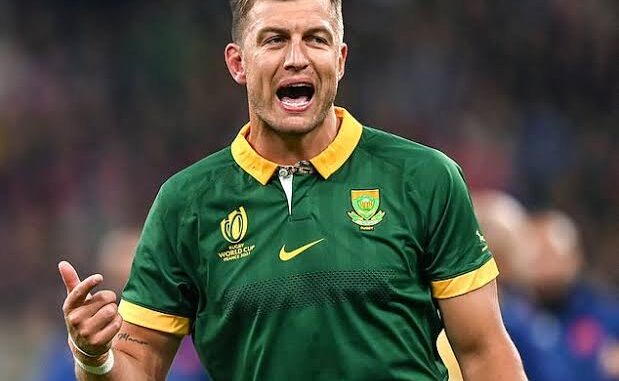
worth approximately $27 million a year, Handre pollard is reportedly seeking a similar level of pay for his compensation However,….
In a stunning turn of events, Handre Pollard, the renowned rugby sensation, has reportedly demanded a jaw-dropping $27 million per year in compensation. This eye-popping figure has sent shockwaves throughout the rugby world, igniting a fervent debate on player salaries and financial sustainability within the sport.
Pollard, known for his exceptional skills and commanding presence on the field, has long been regarded as one of the top talents in rugby. His performances for both club and country have earned him accolades and admiration from fans and peers alike. However, his latest salary demand has raised eyebrows and sparked intense speculation about the future landscape of rugby contracts.
The 27-year-old South African fly-half, currently playing for Montpellier in the Top 14 league, is no stranger to lucrative contracts. His previous deals have reportedly been in the multi-million dollar range, reflecting his market value and importance to his teams. However, his latest demand represents a significant escalation in player compensation, pushing the boundaries of what is considered reasonable in the world of professional rugby.
Sources close to Pollard have cited several factors behind his audacious salary request. Firstly, Pollard’s representatives argue that his stature in the sport warrants a commensurate level of compensation. With his track record of success and impact on the field, they believe that he is entitled to be among the highest-paid players in the world.
Secondly, Pollard’s camp points to the growing commercialization of rugby and the influx of television and sponsorship revenue into the sport. They argue that players should receive a fair share of these financial windfalls, especially those who contribute significantly to the popularity and success of the game.
However, not everyone is convinced by Pollard’s demands. Critics within the rugby community have raised concerns about the sustainability of such exorbitant salaries, particularly in light of the financial challenges faced by many clubs and leagues. They argue that inflated player salaries could exacerbate existing inequalities within the sport and potentially jeopardize the long-term viability of professional rugby.
Furthermore, there are questions about the precedent that Pollard’s demand could set for other players seeking similarly astronomical compensation packages. If Pollard were to receive $27 million per year, would other top players expect similar treatment? And how would smaller clubs and leagues, already struggling to compete with wealthier counterparts, cope with the financial burden?
Amidst the ongoing debate, one thing is clear: Handre Pollard’s salary demand has reignited discussions about the economics of rugby and the relationship between players, clubs, and the broader sporting industry. As negotiations continue between Pollard and his current or potential future employers, the outcome could have far-reaching implications for the future of professional rugby and the way in which players are compensated for their talents.
Leave a Reply